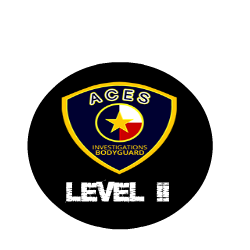This includes level III and level IV training schools, as well as guard companies that offer in-house level II training.
These training providers must notify each enrollee of the following:
- The potential ineligibility of an individual who has been convicted of a criminal offense;
- The department’s current eligibility guidelines (the board’s administrative rules) issued under Occupations Code, Section 53.025;
- Any other state or local restriction or guideline used by the department to determine the eligibility of an individual who has been convicted of an offense; and
- The right to request a criminal history evaluation under Occupations Code Section 53.102.
Pursuant to HB 1508, if an individual is denied an occupational license based on their criminal history and the training provider failed to provide the individual the above information, the training provider will be required to refund the amount of any tuition paid and corresponding application and examination fees.
- For purposes of compliance with these requirements it is recommended training schools and other licensees that offer in house level II training communicate the following text directly to the prospective applicant, whether by email or other correspondence, or on the application for admission to a course.
- “Please be advised under the Private Security Act (Occ. Code Chapter 1702) and Administrative Rule 35.4 (37 Tex. Admin. Code 1), a criminal conviction may disqualify you from a registration, commission or license under the Act. You may wish to review Rule 35.4’s list of disqualifying offenses and the related periods of ineligibility, available on the department’s website at http://www.dps.texas.gov/rsd/psb/index.htm (click on the link to Administrative Code). You also have a right to request from the department a criminal history evaluation letter under Occupations Code Section 53.102.”
The Department of Public Safety (DPS) regulates the private security profession in Texas.
- DPS protects the public by conducting fingerprint-based background checks on applicants, licensing training schools and instructors, investigating and resolving complaints, and taking disciplinary action against licensees or seeking criminal prosecution of those who perform private security services without a license.
- The private security profession includes armed and unarmed security guards, personal protection officers, private investigators, private security consultants, alarm systems installers and monitors, guard dog trainers, armored car couriers, electronic access control device installers, and locksmiths.
DPS regulates the private security profession under the authority of the Texas Occupations Code, Chapter 1702 and the related administrative rules.
ARE YOU LOOKING FOR A NEW CAREER PATH?
This course will teach individuals with little or no previous experience the basic principals of the security industry using the State of Texas required materials.
- This course provides the Level II training and certification as required by the State of Texas.
- Once complete, you will be provided with the basic certification (to be submitted and approved by the State) to be able to work legally as an unarmed security officer in the State of Texas.
The Level II Training Course and test is required of all non-commissioned security officers, commissioned security officers and personal protection officers.
- This training course must be administered by a licensed Level III or Level IV Training School and taught by a licensed Level III or Level IV Instructor.
- Additionally, this training may be administered by a licensed guard company and taught by the qualified manager or the qualified manager’s designee.
CERTAIN PEACE OFFICERS MAY BE EXEMPT PER TAC 35.141(B)
Training includes: Laws and Regulations, Field Notes and Report Writing, Crime Scene, Cover and Concealment, Use of Force, Conflict Resolution, and Ethics.
PREREQUISITE
There are no prerequisites for this course.
REQUIREMENTS
This course can be taken at your leisure.
- There is no time limit.
- Some students are already familiar with the laws and concepts and some students are not.
- This Learning Management System is not timed.
- However, there is enough training material found in the following lessons to adequately cover 8-10 hours of in-class training.
THE STUDENT MUST PASS EACH LESSON EXAM WITH A 75% OR BETTER TO MOVE TO THE NEXT LESSON.
- The exams can be reset and the lesson continue to loop until the student makes a passing grade.
- Learning is accomplished as the student successfully completes each lesson and exam.
EQUIPMENT
To complete this course you are required to have a computer with internet access.
- Broadband Internet connection
- Current Brower:
- Recommended: Firefox 30 or higher, Mozilla, Google Chrome 37 or higher
- Alternatives: Internet Explorer 10 or higher, Safari 7 or higher
- Adobe Acrobat Reader 10 or higher
- Adobe Flash 11 or higher
AUDIENCE
Non-commissioned security officers in the State of Texas
Any person wishing to pursue a Texas Private Security Board non-commissioned security officer certification
Applicants are encouraged to review the eligibility criteria in Texas Occupations Code, Chapter 1702 of the Private Security Act and Board Administrative Rules.
EDUCATION CREDITS
6.00 hours – Texas Department of Public Safety – Private Security Bureau

